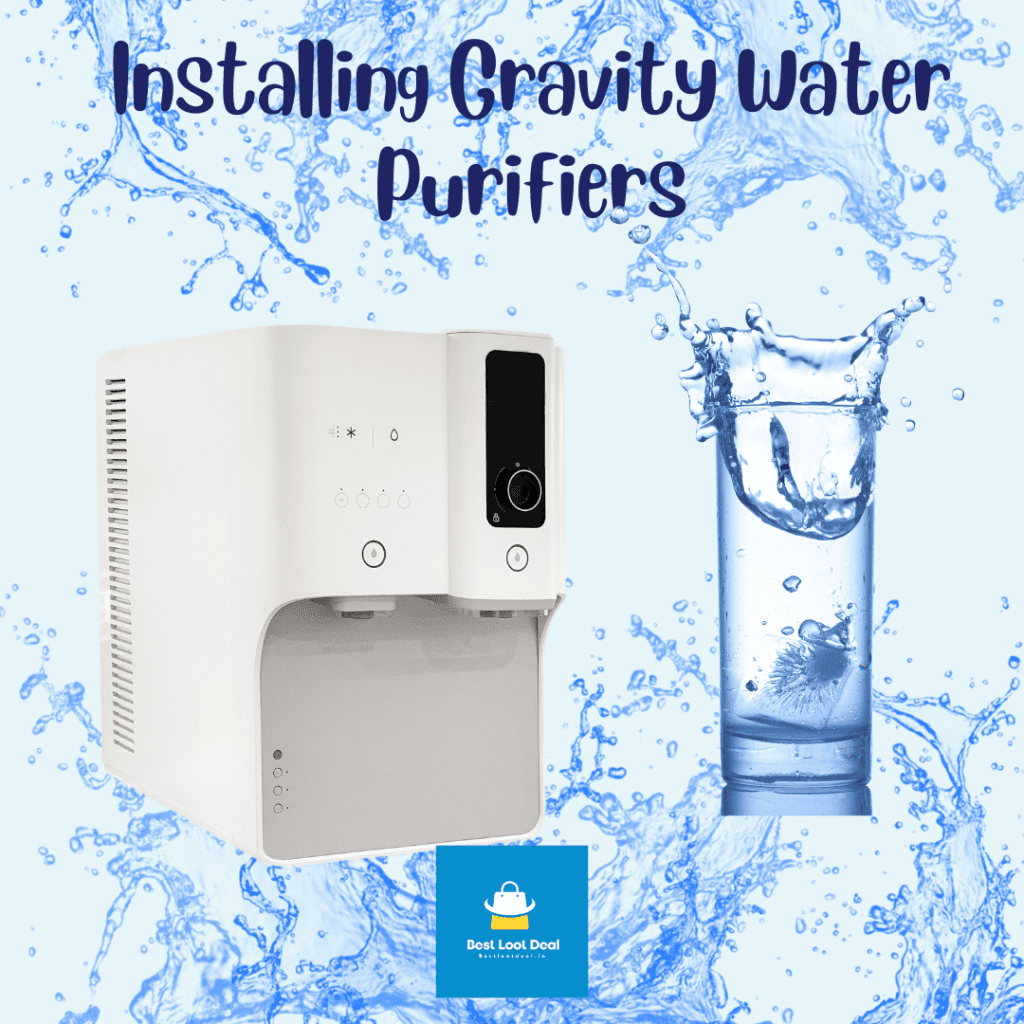
Installing Gravity Water Purifiers: A Comprehensive Guide for Clean Drinking Water
Installing Gravity Water Purifiers In an era of astounding technological advancements, one innovation that often goes overlooked but holds immense potential for ensuring access to clean drinking water is the Gravity Water Filter. This article delves deep into the world of Gravity Water Purifiers, exploring their various features, benefits, working mechanisms, and recommendations for the best models available. Designed for the Indian English-speaking audience, this guide will take you on a chronological journey, from the basics to the specifics, ensuring a thorough understanding of Gravity Water Purifiers.
What Is a Gravity Water Filter?
Everything You Need To Know About Gravity Water Filter
A gravity water filter is a wonder of efficiency and simplicity. It is a device that uses gravity to clean polluted or contaminated water, making it suitable for drinking. It easily completes this purifying process thanks to its two chamber design, which consists of an upper and a lower chamber. You pour contaminated water into the upper chamber, and the water is then cleansed and transferred to the bottom chamber.
The fact that the Gravity Water Filter doesn’t require electricity or plumbing to function is one of its most notable characteristics. This system relies on the weight of the water to force it over and through the filters, supplying clean, drinkable water continuously.
Overview of Gravity Water Filter
Gravity water filters, as the name suggests, utilize gravity to facilitate the filtration process. These filters work by allowing water to flow downward while it undergoes the purification process. Whether you have distilled water, reverse osmosis, or charcoal filtered water, a gravity filter can effectively purify it.
One of the significant advantages of gravity water filters is their independence from electricity. In areas with poor-quality tap water or during emergencies, gravity filters come to the rescue without relying on external power sources.
How Does It Work?
The upper chamber of the gravity water filter is equipped with a filtration element that plays a pivotal role in removing contaminants and pollutants from the water. This element consists of microscopic pores that only allow water to pass through, leaving impurities behind. As the water flows through this filtration element, it becomes safe for consumption.
While different manufacturers may use variations in their filtration elements, the core principle remains consistent: the water flows from the upper chamber to the lower chamber, leaving behind all impurities. This straightforward yet effective process ensures clean and safe drinking water.
When Was the Gravity Water Filter Discovered?
Surprising Origins of Gravity Water Filter
The Gravity Water Filter can be traced back to the year 1800 in London, England. It was during a time of rampant water-borne diseases that legendary craftsman John Doulton, along with Martha Jones and John Watt, pioneered water filtration solutions. Recognizing the urgent need for clean water, they designed water filter cases filled with powdered carbon.
Queen Victoria herself acknowledged Doulton’s expertise, leading to the establishment of their company as a premier manufacturer of industrial products. In 1835, at Queen Victoria’s request, Doulton crafted gravity-fed stoneware units made from delicately designed ceramics.
Pros and Cons of Gravity Water Filter
Indeed, the gravity water filter boasts several advantages, as well as a few disadvantages. Let’s explore both aspects:
Pros:
- Effectiveness and efficiency in purifying water.
- Various sizes available to suit different needs.
- Versatile placement options, even on countertops.
- Low maintenance, with filter replacements needed only once or twice a year.
- Independence from electricity, making it reliable during power outages.
- Budget-friendly options for those who prefer DIY solutions.
Cons:
- Some replacement parts can be costly, particularly for budget-conscious individuals.
- The choice of filter size must align with your daily water consumption, as buying a filter too large or too small can be inefficient.
- Filtration speed varies between models, so consider your preferences for quick or thorough filtration.
What To Consider Before You Buy A Gravity Water Filter
Before investing in a gravity water filter, consider these essential factors:
1. Space Availability: Determine where you plan to place the gravity-fed water filter, ensuring you have sufficient space for your chosen model.
2. Daily Water Needs: Assess your daily water consumption to select a filter that can meet your requirements. Calculate the filtration capacity of each filter cartridge to estimate replacement frequency.
3. Water Quality Analysis: Understand the composition of your water supply by referring to the Environmental Protection Agency’s water quality report in your region or conducting a water test. This knowledge will help you select a gravity filter that can effectively remove specific contaminants.
4. pH Level: Check the pH level of your water supply, as alkaline water offers health benefits. If desired, choose a gravity water filter that can enhance the pH level of your drinking water.
In conclusion, Gravity Water Purifiers are a remarkable solution for ensuring access to safe and clean drinking water, especially in areas with questionable water quality. Their history, effectiveness, and versatility make them a valuable addition to any household. By considering your unique requirements and understanding the features of different models, you can make an informed choice when selecting the best Gravity Water Filter for your needs. Don’t compromise on the quality of your drinking water; let the force of gravity work in your favor with a Gravity Water Purifier.
Read More



